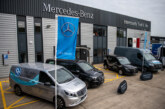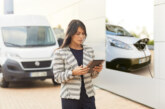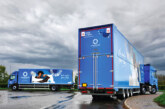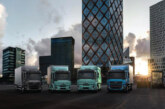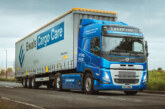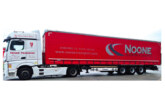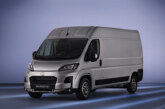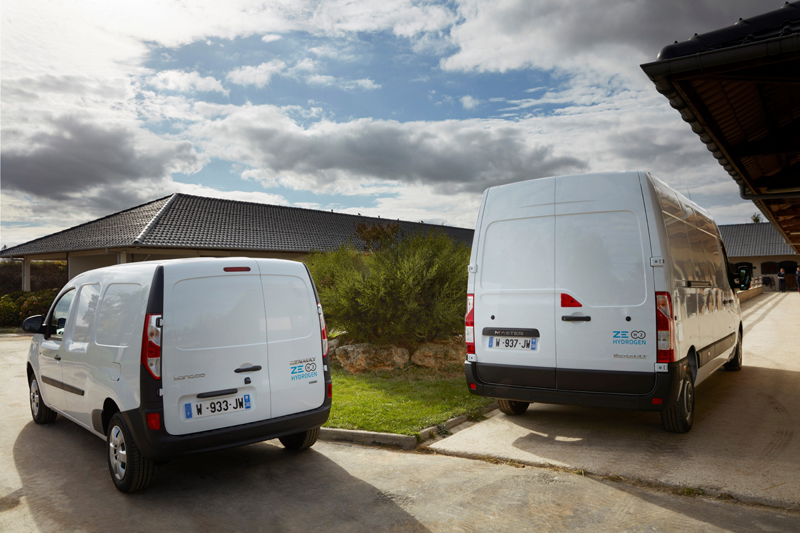
Renault has announced it has extended the use of its electric light commercial vehicles with hydrogen.
Tested since 2014, Groupe Renault’s hydrogen technology has been developed in partnership with Symbio, a Groupe Michelin subsidiary. The vehicles are equipped with a range extender fuel cell providing electric and thermal power of 10 kW, increasing the range of Renault MASTER Z.E. Hydrogen and Renault KANGOO Z.E. Hydrogen to over 350km.
An advantage of creating a hydrogen option is said to be that charging takes just five to 10 minutes. A Hydrogen option is also said to respond better to the requirements of professionals, which Renault believes has not yet to be fulfilled by electric vehicles, for example their long-distance travel needs.
Expected in first-half 2020, Renault MASTER Z.E. Hydrogen will triple the range from 120km to 350km and will be available in van (two versions) and chassis cab (two versions). Equipped with two hydrogen tanks located under the car body, the vehicle will reportedly gain in versatility with no compromises on the load volume from 10.8m3 to 20m3 with a reasonable additional weight of 200kg.
From the end of 2019, Renault KANGOO Z.E. Hydrogen will have a range of 370km – vs 230km WLTP with Kangoo Z.E. – with a load volume of 3.9m3, despite a reasonable additional weight of 110kg.
Denis Le Vot, Alliance SVP, Renault-Nissan LCV Business Unit, commented: “Groupe Renault completes its range of electric light commercial vehicles with the launch of Renault MASTER Z.E. Hydrogen and Renault KANGOO Z.E. Hydrogen. These vehicles provide professionals with all the range they require for their long-distance journeys as well as record charging times. And the advantages do not stop there, as Renault MASTER Z.E. Hydrogen and Renault KANGOO Z.E. Hydrogen can run on decarbonized energy that respects the environment while offering all the comfort of electric driving.”
These hydrogen electric vehicles operate with a fuel cell, which combines hydrogen from its tanks with oxygen from the air to produce electricity, to power the electric motor. The first advantage is said to be that these vehicles meet the new environmental challenges of urban mobility. In addition, they reportedly offer increased autonomy, fast hydrogen recharging – from five to 10 minutes – and easy maintenance. These advantages are said to make hydrogen electric light commercial vehicles particularly suitable for the intensive needs and uses of professionals in large urban areas up to the periphery of cities: transport and logistics, urban deliveries and multi-technical services, municipal and local authority services, express and special mail.

